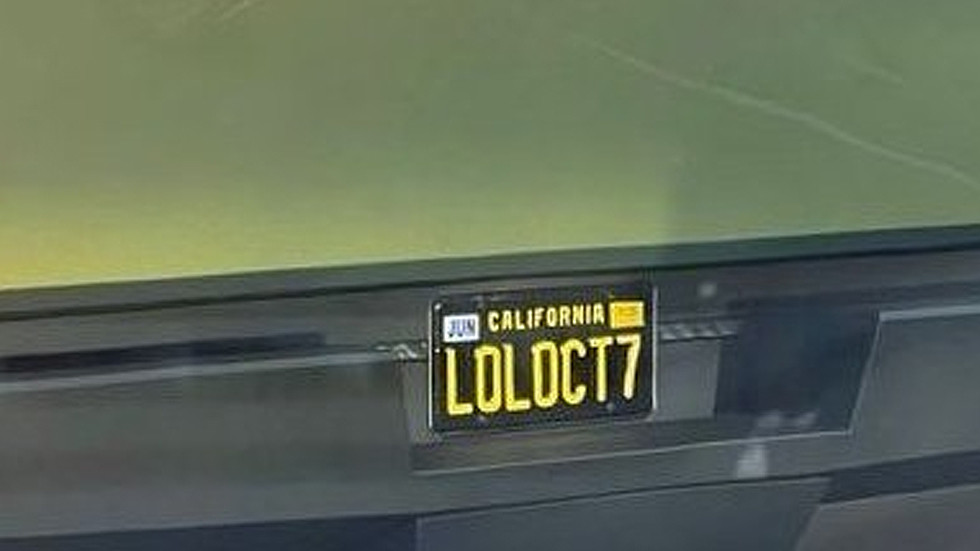In recent events surrounding license plate registration, a personalized plate featuring “LOLOCT7” has drawn significant controversy and backlash, perceived by many as insensitive to the tragic events related to the October 7 attack on Israel by Hamas. The plate was attached to a Tesla Cybertruck and caught public attention when it was spotted in Culver City, California. Activist group StopAntisemitism highlighted the plate on social media, suggesting it was a mockery of the assault which left approximately 1,200 individuals dead and another 250 taken hostage. The aftermath of the attack triggered a devastating military conflict, with significant loss of lives on both sides, including over 45,000 Palestinian fatalities—most of whom were civilians.
StopAntisemitism condemned the license plate, claiming it celebrated and trivialized what they termed “terrorism against the Jewish people.” They called for the California Department of Motor Vehicles (DMV) to act swiftly in revoking the offensive plate, which they considered an insult to the memories of the innocent lives lost due to the violence. Following mounting pressure and condemnation, the DMV issued a public apology, promised to revoke the plate, and vowed to improve its internal review processes to prevent such oversight in the future. The episode highlights not only the sensitivities surrounding recent violent events but also the role of public bodies in monitoring personal expressions such as personalized license plates.
Amidst the uproar, the owner of the Tesla and their family defended the meaning behind the controversial license plate. The family’s interpretation, as communicated by the son, emphasizes that the plate has no connection to the attack. In Tagalog, “lolo” translates to “grandfather,” and the “CT” signifies “Cybertruck,” while the number “7” represents the owner’s seven grandchildren. They expressed a desire for understanding from the public, asserting that their intention was not rooted in any form of malice or insensitivity. They felt the need for empathy towards their family, which they argue had a harmless reason for choosing the plate.
The family conveyed their previous explanations during the DMV’s application process, asserting that they were transparent regarding the true significance of the plate. The incident illustrates a growing need for awareness regarding the ramifications of personal expressions, particularly in times when communal sensitivities are heightened due to recent events. The family’s perspective invites a reflection on how context can dramatically alter the interpretation of symbols and expressions, particularly when they intersect with recent tragedies.
While the DMV’s swift response has been lauded, it raises questions about the processes involved in the approval of personalized plates and the potential for misinterpretation. It exemplifies the fine line between freedom of expression and the responsibility that comes with it, particularly in a diverse society with varying perspectives on sensitive topics. The incident also highlights the challenges faced by public institutions in navigating the minefield of personal expression while responding to community concerns about insensitivity and offense.
In conclusion, the “LOLOCT7” license plate incident serves as a cautionary tale about the complexities of language, symbolism, and public perception amidst societal trauma. As families and individuals assert their identities through personal expressions, there is a simultaneous expectation for awareness and sensitivity towards the experiences of others. This incident encourages ongoing dialogue about the interpretation of symbols within contemporary contexts and reinforces the importance of empathy and understanding in a diverse society navigating through periods of conflict and loss.

